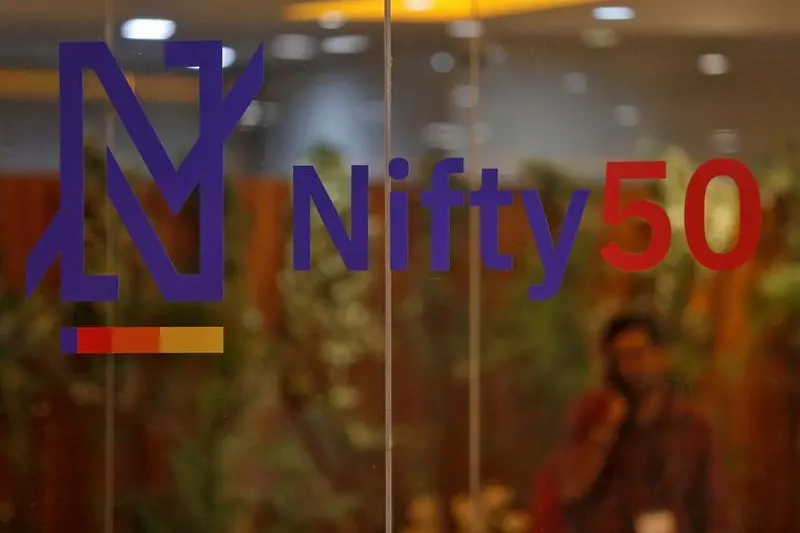PHOTO
India's benchmark Nifty 50 index hit a record high on Thursday, as the central bank's hefty dividend to the government boosted financials amid hopes of an improvement in the country's fiscal deficit.
The blue-chip NSE Nifty 50 rose as much as 1.08% to 22,841.65 points, an all-time high. The S&P BSE Sensex rose 0.98% to 74,951.74, as of 12:55 p.m. IST.
India's central bank approved a record surplus transfer of 2.11 trillion rupees ($25.35 billion) to the government for fiscal 2024, well above the government's projection.
The Reserve Bank of India's (RBI) record dividend will have a compounding effect on the expenditure and consumerisation of the economy, which is a huge positive for equity markets as well, Deven Choksey, managing director at DRChoksey FinServ said.
The higher dividend from the RBI will improve the government's cash position, which is a positive for banking stocks, analysts said.
Financials, the heaviest-weighted sector in the Nifty 50 index, rebounded from a 0.82% drop in the last two sessions to rise 1.33%. State-owned banks climbed 2%.
Private lenders Axis Bank and IndusInd Bank rose 3.6% and 2%, respectively, and were among the top five Nifty 50 gainers.
The Nifty 50 had last hit a record high in early May but uncertainty over the outcome of India's general elections and foreign selling had pushed volatility to near two-year highs.
However, steady domestic buying have helped curb losses.
High inflows from mutual fund investors through the systematic investment plan-route will continue to be the norm, Deven Choksey said.
On Thursday, metal stocks dropped 0.45%, weighed down by a strong U.S. dollar following hawkish Federal Reserve minutes.
Power Grid Corporation of India lost 2.6% after reporting a drop in March quarter profit.
Sun Pharmaceutical Industries dropped 3% after the drug maker missed March quarter revenue estimates.
Power Grid and Sun Pharma were the top Nifty 50 losers.
($1 = 83.2300 Indian rupees)
(Reporting by Bharath Rajeswaran and Dimpal Gulwani in Bengaluru; Editing by Mrigank Dhaniwala and Janane Venkatraman )





















